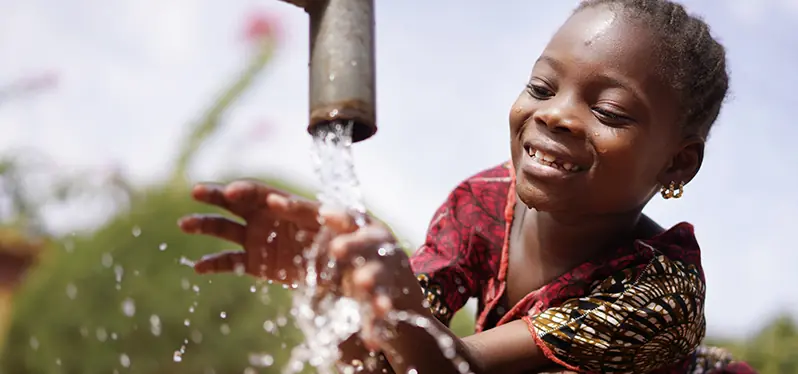Posted in: 03/01/2021
In 2010, the United Nations (UN) declared access to clean and safe water and basic sanitation fundamental human rights. The commitment to guarantee them for all people by 2030 is a goal established worldwide, and adopted, including by Brazil.
“Ensure availability and sustainable management of water and sanitation for all”
UN Sustainable Development Goal (SDG) number 6.
But achieving these basic rights to life still seems an almost impossible task for thousands of human beings.
More than 32 million Brazilians do not have access to piped water.
About 6.1 million households, and 18.4 million Brazilians, do not receive piped water on a daily basis.
3 million households received water at most 3 times a week.
In the Northeast, 1 in every 4 households does not have a daily water supply.
Approximately 1.6 million households do not have a toilet.
The North and Northeast have the lowest sewage network coverage.
Only 46% of the sewage generated in the country is treated.
4 billion people suffer from severe water scarcity.
2.2 billion people lack access to safe drinking water: 1 in 3 people on the planet.
1 in 4 hospital facilities has no running water. 10% have no basic sanitation.
4.2 billion people have no safe sewage services.
About 40% of the world’s population lives without water and soap to wash their hands.
Data from the National Sanitation Information System (SNIS) of the Brazilian Institute of Geography and Statistics (IBGE), World Health Organization (WHO), and WASH Global Report on Health Facilities – 2020 Reports, with reference to the year 2019.
The lack of sanitation and clean water has always been critical and has caused thousands of deaths from diseases such as cholera, typhoid, diarrhea, and infections. But the Covid-19 pandemic has added a new aggravating element to the situation.
When there is no water, how do you protect the population against a disease that has, as one of its main forms of control, the reinforcement of hygiene habits and the need to wash hands with soap and water constantly?

The lack of water and sewage networks increases the number of deaths from Covid-19 in areas of poor communities, vulnerable rural communities and street populations.
Ensuring water supply to the population is to guarantee an essential service, especially in times of pandemic.
In Brazil, the exemption of water consumption tariffs was an important measure adopted by some state governments to prevent more families from being without this resource.
At the same time, the population has been faced with threats of privatization of sanitation services, and is concerned about possible increases in prices and abusive charges for services they can barely afford. Consequently, if the predictions are confirmed, the problems of social exclusion and inequality could worsen, as well as those of public health.
On this day of water, March 22, how about reflecting on its privileges and how you use such an important resource?
Learn more about it:
Check the popular Informative, created by the National Observatory of the Rights to Water and Sanitation (ONDAS), to guide the population about the rights in relation to access to water in times of pandemic.
Download the Practical Guide for the Sustainable Use of Water Resources, produced by experts from Synergia Consultoria Socioambiental.
Sign up and receive our news.